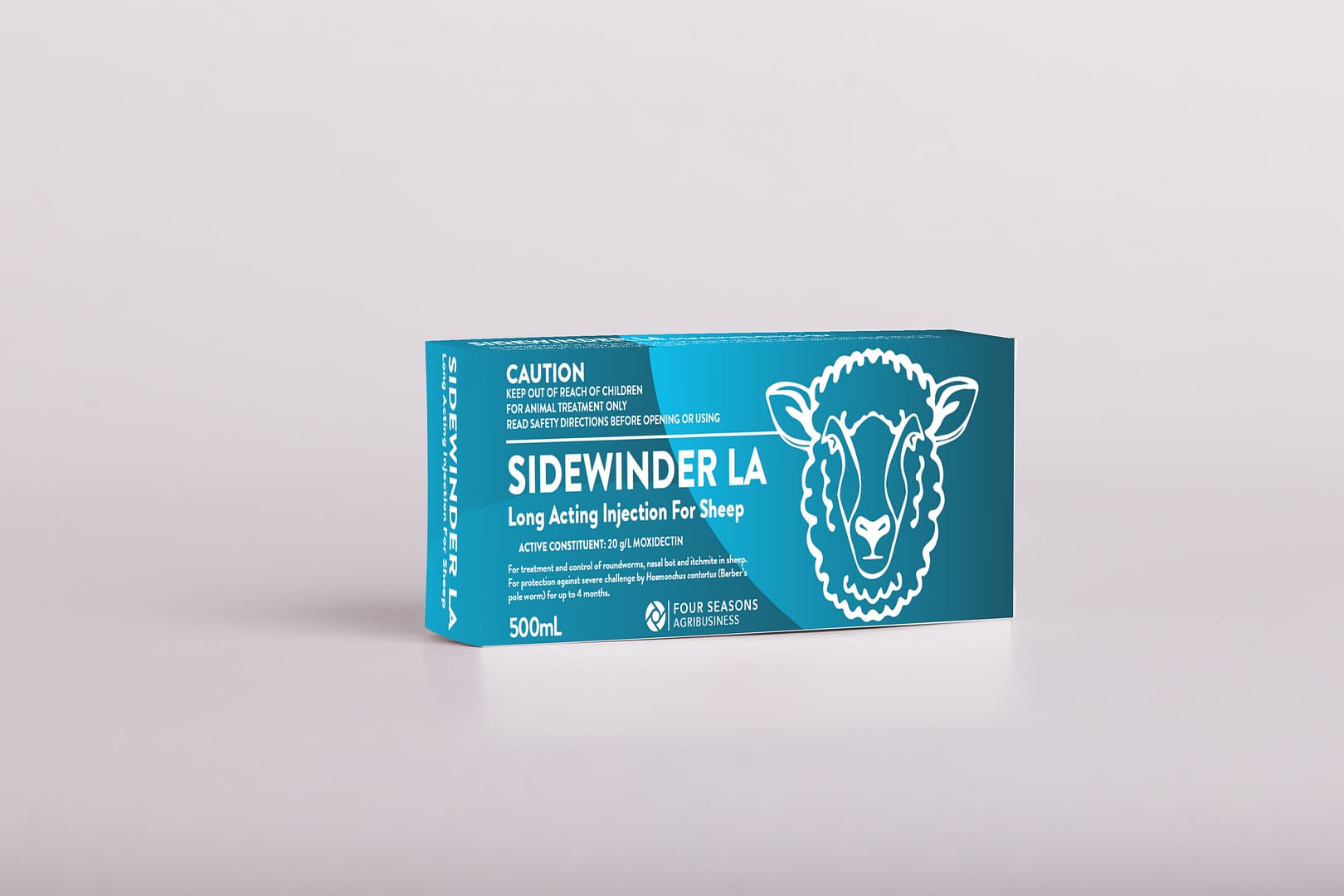Sidewinder LA Long Acting Injection for Sheep
Product description
For treatment and control of roundworms, nasal bot and itchmite in sheep and for protection against severe challenge by Haemonchus contortus (barber’s pole worm) for up to 4 months.
- Long acting control of barber’s pole worm, Teladorsagia (Ostertagia) circumcincta for not less than 91 days, and Trichostrongylus colubriformis for up to 49
- Long acting protection against severe challenge by barber’s pole worm for up to 4 months
- Nasal bot control
- Itchmite control
Sidewinder LA Long Acting Injection For Sheep contains moxidectin, a second generation of the macrocyclic lactone family. It is effective against sensitive strains of the below parasites and provides protection against severe challenge by Haemonchus contortus (barber’s pole worm) for up to 4 months.
|
Product and Safety Information
|
| Active Ingredients |
| MOXIDECTIN 20 g/L |
| Pack Sizes |
| 500ml |
| Formulation Type |
|
PARENTERAL LIQUID/SOLUTION/SUSPENSION
|
| Key Issues Controlled |
| Internal Parasites
Mature (adult) and immature (L4) Haemonchus contortus (barber’s pole worm) Trichostrongylus spp. (black scour worm) Trichostrongylus axei (stomach hair worm) Trichostrongylus colubriformis Teladorsagia (Ostertagia) spp. (small brown stomach worm) Teladorsagia (Ostertagia) circumcincta Ostertagia lyrata Cooperia spp. (small intestinal worm) Cooperia oncophora Nematodirus spp. (thin necked intestinal worm) Nematodirus battus Nematodirus filicollis Nematodirus spathiger Strongyloides papillosus (intestinal threadworm) Oesophagostomum columbianum (nodule worm) Chabertia ovina (large mouthed bowel worm) Dictyocaulus filaria (large lungworm) Adult nematodes Trichostrongylus rugatus Trichostrongylus vitrinus Ostertagia trifurcata Coopeda curticei Nematodirus abnormalis Nematodirus helvetianus Oesophagostomum venulosum (large bowel worm) Trichuris avis
External parasites Psorergates avis (itch mite) Oestrus avis (nasal bot)
RESISTANCE AND WORM CONTROL PROGRAMS It is advisable that a drench resistance test be conducted before any anthelmintic treatment is used. Resistance may develop to any anthelmintic treatment. Ask your local veterinary practitioner or animal health advisor for recommended parasite management practices for your area. |

